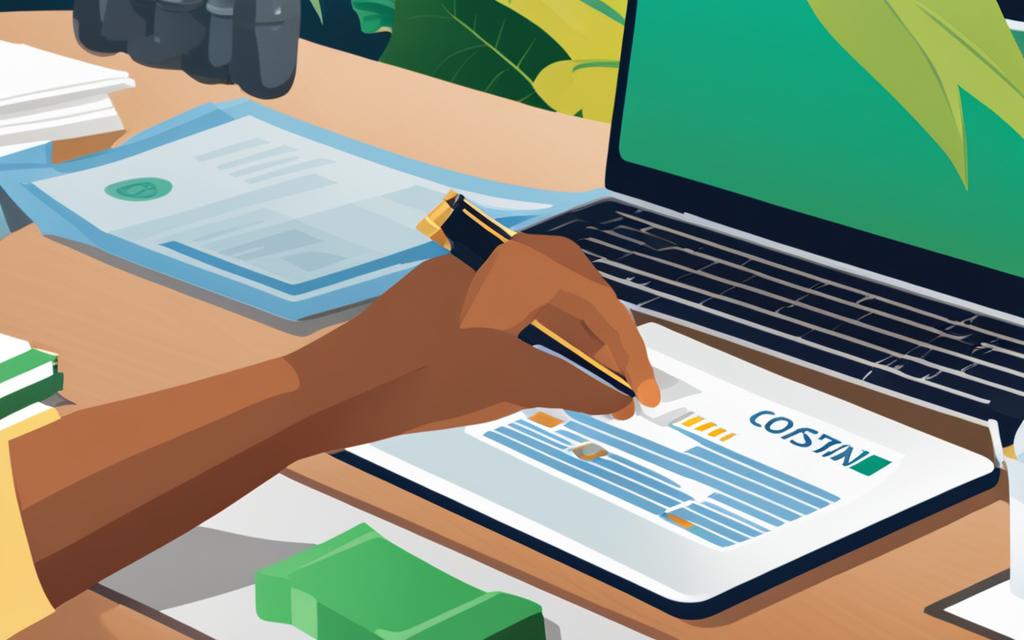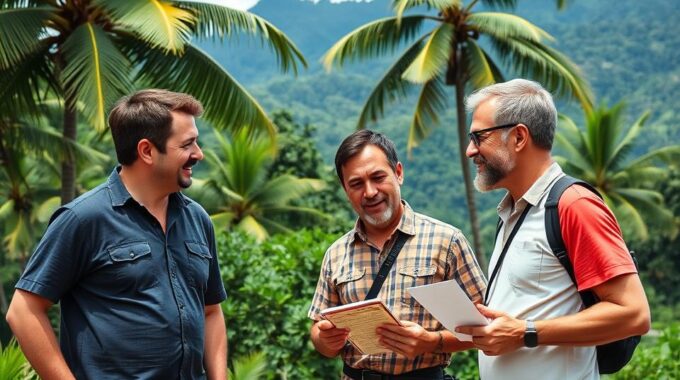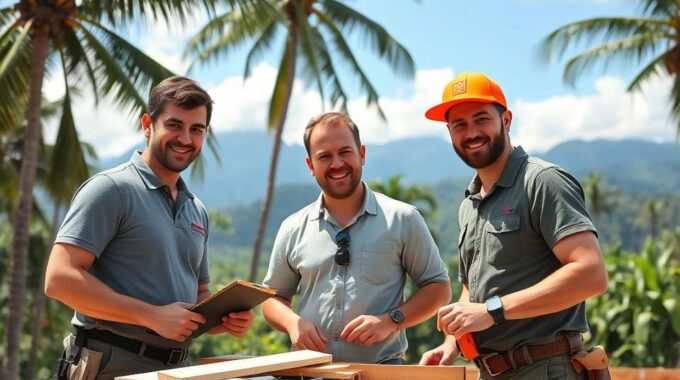Discover transparent, no-hidden-fees personal loans in Costa Rica with GAP Equity Loans. Experience fair financing and clear terms.

Explore Unsecured Loans in Costa Rica – Your Financial Guide
Looking for unsecured loans in Costa Rica to fulfill your financial needs? This financial guide will walk you through the most reliable loan options in Costa Rica, helping you make informed decisions while borrowing money in the beautiful Central American country. We’ll introduce you to the ins and outs of no collateral loans and highlight crucial aspects of quick loan approval in Costa Rica.
Key Takeaways
- Unsecured loans in Costa Rica offer an array of borrowing opportunities for diverse financial goals.
- Interest rates for unsecured loans typically range from 12% to 16%.
- No collateral loans provide quick financial solutions and are ideal for borrowers who can’t secure a loan with property.
- Understanding the loan options and eligibility requirements is essential for wise borrowing decisions.
- Personal loans, GAP Equity loans, and other unique options suit different budgetary requirements and financial situations.
Introduction to Personal Loans in Costa Rica
The personal loans industry in Costa Rica offers various categories of financial assistance to individuals in need. No matter your borrowing needs, a diverse range of options exists to cater to people from all walks of life. This allows for easier access to funds required for various urgent or significant expenses, such as debt consolidation, home improvements, medical bills, or higher education.
One of the key benefits of personal loans in Costa Rica is the flexible borrowing amounts available, allowing individuals to borrow sums ranging from small to larger sums depending on their specific needs. The interest rates typically lie between 12% and 16%, depending on the lender, borrower’s creditworthiness, and loan tenure. This broad spectrum caters to a wide variety of borrowers, giving them the opportunity to find suitable loan options to meet their financial goals.

The personal loan industry in Costa Rica features various loan categories, providing accessible financing solutions for a wide range of borrowers with different requirements.
When exploring the Costa Rica loan industry, it is imperative to understand the different types of personal loans to make an informed decision. Some commonly available categories include:
- Unsecured personal loans – not backed by collateral, making the loan application process quicker and easier, but typically come with higher interest rates than secured loans;
- Secured personal loans – require collateral, such as a vehicle or property, to ensure loan repayment, and generally offer lower interest rates;
- Line of credit – a flexible borrowing option that allows access to a pre-determined amount of cash whenever needed, with interest payable only on the withdrawn funds;
- Payday loans – short-term, high-interest loans intended for emergency use, often repaid on the borrower’s next payday;
- Peer-to-peer loans – arrangements where individuals directly lend money to other individuals without intermediaries, such as financial institutions;
Borrowers should carefully analyze their financial situation and determine their specific borrowing needs when choosing the most appropriate loan type. Evaluating factors such as affordability, interest rates, loan terms, and repayment flexibility can contribute to a successful borrowing experience and accomplish financial objectives.
Understanding GAP Equity Loans and Their Benefits
While unsecured loans offer a valuable financial solution for borrowers in Costa Rica, one should also explore the benefits of GAP Equity Loans. In this section, we will delve into the specifics of GAP Equity Loans, demonstrating how borrowers can use their property as collateral to unlock equity for their financing needs. The advantages such as lower interest rates, obtaining significant financing without having to sell property, and tailored loan terms ranging from 6 months to 3 years will be explored.
What Are GAP Equity Loans?
GAP Equity Loans are a form of property collateral loans, enabling borrowers in Costa Rica to leverage the equity in their property to obtain substantial loan amounts. These loans are based on property value assessments and provide access to funds at potentially lower interest rates compared to unsecured loans. This financial solution offers flexibility to borrowers, catering to their specific needs and preferences in terms of loan terms and repayment conditions.
Advantages of Using Your Property as Collateral
There are several advantages to using property as collateral for GAP Equity Loans, which include:
- Lower interest rates: Compared to unsecured loans, property collateral loans typically have more competitive interest rates, making them a more cost-effective option for borrowers;
- Substantial financing: By using property as collateral, borrowers gain access to large loan amounts, enabling them to fulfill their financial needs;
- Retaining property ownership: Borrowers can unlock the equity in their property without having to sell it, maintaining ownership and control throughout the loan term.
Interest Rates and Loan Terms with GAP Equity Loans
Interest rates for GAP Equity Loans in Costa Rica usually range from 12% to 16%, offering competitive financing options for borrowers. Moreover, the flexible loan terms in Costa Rica, varying from 6 months to 3 years, provide borrowers with the opportunity to tailor their repayment conditions according to their financial planning, ensuring that they can comfortably fulfill their obligations.
GAP Equity Loans offer borrowers the opportunity to leverage their property equity for competitive financing, providing access to substantial funds without the need to sell their property.
In summary, GAP Equity Loans in Costa Rica serve as a valuable financing option for borrowers seeking lower interest rates, access to larger loan amounts, and flexible loan terms while retaining property ownership. Exploring this form of lending can give borrowers an edge when it comes to managing their financial needs and achieving long-term financial stability in Costa Rica.
Step-by-Step Guide to the Loan Application Process

The loan application process in Costa Rica can be divided into three main steps: gathering the necessary documentation, selecting the right loan provider, and completing the application while awaiting approval. This personal loan guide will help you navigate each step so that you can secure financial assistance with confidence.
Gathering the Necessary Documentation
Preparing the necessary documentation is a vital part of the loan application process. Ensuring that all required documents are accurate and up-to-date will increase your chances of a smooth and successful application experience. Some essential documents for loan applications in Costa Rica include:
- Proof of income (e.g., pay stubs, bank statements, or tax returns)
- Employment verification (e.g., a letter from your employer)
- Personal identification (e.g., passport, driver’s license, or national identification card)
- Property information (if using your property as collateral)
Be sure to verify the specific documentation requirements for each loan provider, as they may vary depending on the type of loan and your individual circumstances.
Selecting the Right Loan Provider
Another crucial aspect of the loan application process is choosing the right loan provider, tailored to your financial needs and circumstances. There are various options available to borrowers in Costa Rica, such as:
- Private lenders: These companies often offer more flexible terms and easier approval processes compared to traditional banks, but may have slightly higher interest rates.
- Bank financing: Banks may offer longer loan terms and lower interest rates, but often have stricter eligibility requirements and paperwork formalities.
Take time to conduct a thorough loan provider comparison, focusing on factors such as interest rates, loan terms, and eligibility criteria. You may also wish to consider specialized consulting services, such as GAP Equity Loans, which can help guide you to the most suitable loan option based on your financial goals and property equity.
Completing the Application and Receiving Approval
Once you have gathered all necessary documentation and selected the right loan provider, it is time to complete the loan application. This step typically involves filling out the lender’s application form, submitting all required documentation, and paying any applicable fees.
After submitting your application, there are some key aspects to consider:
- Waiting period: Be prepared for a waiting period during which the lender will review your loan application and assess your eligibility. This period can vary depending on the lender and your specific financial situation.
- Loan approval: Upon approval, you will receive a loan agreement detailing the terms and conditions of your loan. Review this document carefully and consult a legal or financial expert if necessary.
- Receiving funds: Once you have signed the loan agreement, the loan provider will disburse the funds. Depending on the lender and your chosen method of receiving funds (e.g., direct deposit or check), this may take several days to complete.
By following this step-by-step guide to the loan application process in Costa Rica, you will be better prepared to navigate the necessary documentation, select suitable lenders, and understand the loan approval process for a smoother borrowing experience.
Conclusion
In summary, developing a solid personal loan strategy in Costa Rica is crucial for achieving financial stability. By understanding the landscape of loan options, borrowers can make informed decisions that align with their financial goals. There are various factors to consider when comparing loans, such as interest rates, loan terms, and eligibility requirements.
It is essential to conduct thorough research on the available lending options, from traditional personal loans to GAP Equity Loans, which involve using one’s property as collateral. By looking into these options, borrowers can find the most suitable loan and lender to meet their needs.
Ultimately, the key to informed borrowing decisions lies in a clear understanding of personal financial goals and extensive exploration of loan comparisons. With diligent planning and research, borrowers can confidently choose the right loan option to achieve their financial objectives in Costa Rica.
FAQ
What are unsecured loans in Costa Rica?
Unsecured loans in Costa Rica refer to loan options that don’t require collateral to be provided by the borrower. These loans are typically available to individuals seeking financial assistance with various borrowing amounts and interest rates between 12% and 16% depending on the lender and borrower’s creditworthiness.
How do GAP Equity Loans work in Costa Rica?
GAP Equity Loans in Costa Rica involve using a property you own as collateral to obtain financing. By leveraging the equity in your property, you can potentially access significant loan amounts at lower interest rates than unsecured loans. These loans also offer flexible loan terms, usually ranging from 6 months to 3 years.
What are some advantages of using property as collateral for a loan?
Using property as collateral for a loan can offer many benefits, including access to larger loan amounts, potentially more favorable interest rates compared to unsecured loans, and the ability to retain ownership of your property while obtaining the necessary funds.
How do interest rates and loan terms work with GAP Equity Loans in Costa Rica?
Interest rates for GAP Equity Loans in Costa Rica typically range from 12% to 16% depending on factors such as borrower’s creditworthiness and loan term. The loan terms offered can be flexible, usually varying from 6 months to 3 years, allowing borrowers to select repayment conditions that suit their financial planning.
What documents are required for a loan application in Costa Rica?
Necessary documentation for a loan application in Costa Rica usually includes proof of income, employment verification, personal identification, as well as details about the property being used as collateral if the loan requires it.
How can I choose between private lenders and traditional bank financing in Costa Rica?
When choosing between private lenders and traditional bank financing in Costa Rica, consider factors such as interest rate flexibility, loan terms, and eligibility requirements like permanent residency status. Private lenders like GAP Equity Loans specialize in providing customized consulting services and may offer more tailored solutions compared to traditional banks.
What does the loan application and approval process involve in Costa Rica?
The loan application process in Costa Rica involves gathering the required documentation, selecting the appropriate lender, and completing the application. During the approval waiting period, lenders will assess your eligibility, creditworthiness, and property value (if applicable). Once approved, you will need to sign the loan agreement and receive the loan funds as per the agreed terms.
Article by Glenn Tellier (Founder of CRIE and Grupo Gap)



